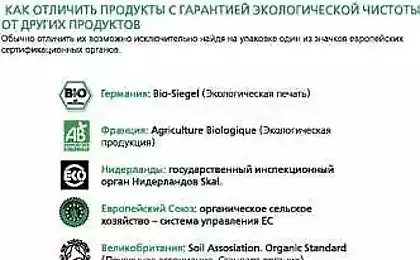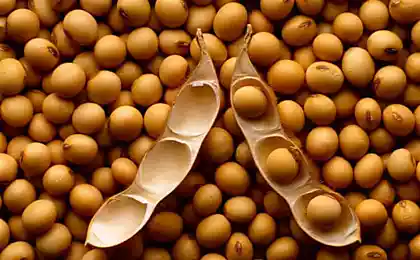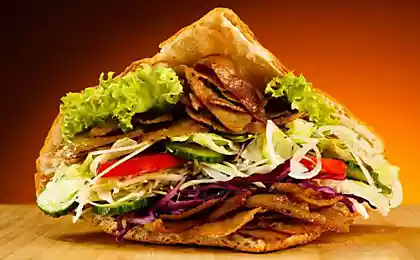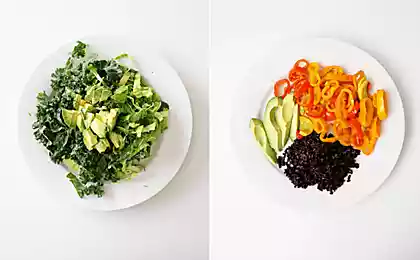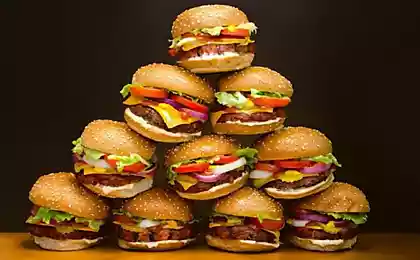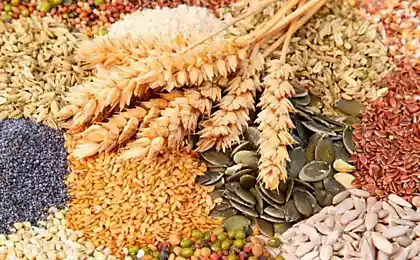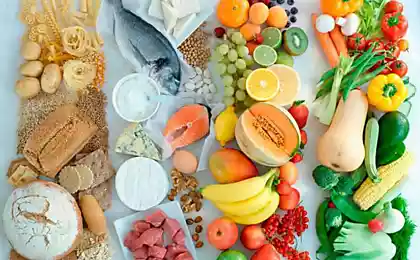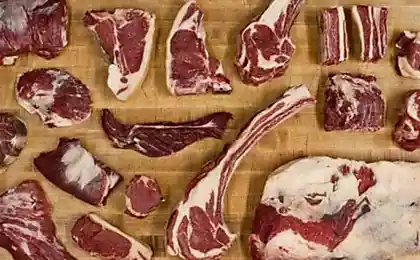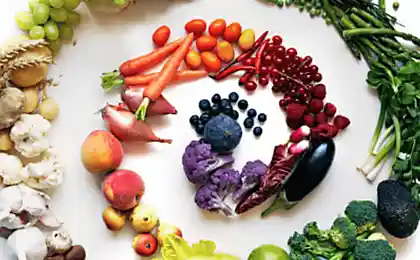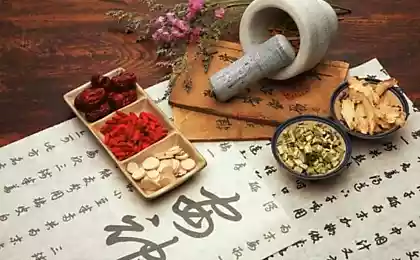419
10 inconvenient facts about Your favorite foods
In the food industry there are many facts that are hidden from users and made public very rarely, only if it is really necessary. The information we are given is the secrets of the most famous insiders the food industry that have already been revealed in the last time, but they still remain unknown to millions of consumers.
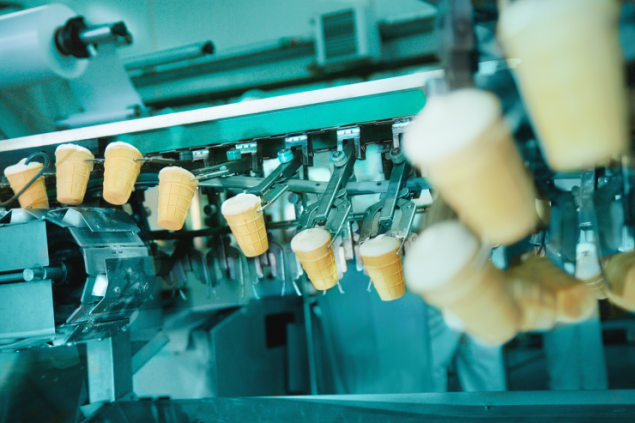
Many consumers are upholding their interests, noticed that the information on the labels claiming that a product is "clean", "fresh", "natural" and "real", mostly not controlled by anyone and is not checked. Moreover, the manufacturing process of most products, the ingredients used, their by-products, waste management and other details conceived hidden from the public – as long as they will not be disclosed to those who are willing to disclose this information.
1. In the production of Greek yogurt annually produces millions of tons of toxic waste.
Three or four ounces of milk producers of Greek yogurt can make only one ounce fat Greek yogurt. The rest becomes acid whey. This watery liquid product, the release of which into the environment is illegal: the decay products of the serum are toxic to the environment, they take the oxygen from streams and rivers that can turn them into what experts call the "dead sea," destroying aquatic life on potentially large areas. Draining into waterways, cheese whey, a cousin of Greek yogurt whey, in recent years, has killed huge numbers of fish.
2. All the orange juice sold in retail grocery stores labeled "not from concentrate" produced with the use of artificial flavoring, which ensures that the taste of the contents of all bottles will be the same.
Regardless of the time of year and origin of oranges, large juice manufacturers like PepsiCo, consistently made the mix perfectly flavored orange juice through carefully controlled processes and selection of the number of artificial flavoring. These mixtures replace the natural aroma that is lost during chemical processing of the juice separation from oxygen ("deaeration"), to extend its shelf life without oxidation.
Because the added flavor is technically derived from orange oil extract (and despite the fact that this connection is completely artificial and is obtained by chemical means), there is no need to mention it in the ingredients.
3. Soy burgers are more toxic than usual.
More than 99% of vegetarian burgers at grocery stores, produced with the addition of soy protein isolate (as textured vegetable protein, soy products). These substances are produced from defatted soy flour and are mainly used in animal feed, with only the addition of sugar and spices to improve flavor.
Soybean oil is usually secreted from layered soya beans – which remain grease-free and are ground into flour – using a chemical called hexane, one of the volatile organic compounds included in the composition of natural gas, oil and gasoline. And since more than 95% of soy is also genetically modified, you also get a solid dose of transgenic DNA in burgers.
The Cornucopia Institute, a progressive organization of the agricultural policy based in the United States, received the samples of soy oil, soy products and soy beans, the content of hexane in which significantly exceeds the limit for food. We should ask ourselves the question: why the hexane limit in our foods in the first place?
4. Conventional milk is produced when high temperature heating, by homogenizing, pasteurizing, repacking and mixing of the milk of hundreds of cows fed genetically modified cereals and are stuffed with hormones.
The farmers of the old school will tell you that you can determine where the cows in the taste of their milk. The milk that we buy in supermarkets, uniformly white, cream, whipped him, and the milky flavor will be noticeable only at high temperatures.
Cows are kept in herds that consist of about 800 head, and eat is not grass, but standardized mixes of genetically modified grains, old citrus, alfalfa and nut husks. Today, an estimated of the University of California at Davis, about a third of the pasture in California is treated with hormones to increase productivity. The milk is standardized, enriched, pasteurized and homogenized. Simply put, it apart and back together, not always in the same proportions. Then cooked and emulsified. This raises the question: how do you think it's still milk?
5. Manufacturers of cocktail cherries chemically bleach (with canned saline solution) and then marinate the cherries in huge vats of corn syrup and food dye (FD&C red 40) to make them red again.
6. Most canned soups are flavored with msg additive, even if you specify that it is not.
Food additive MSG (glutamate monosodium – approx. transl.) is a slow poison which hides under many names, like natural flavor or yeast extract. Currently, the labelling standards do not require MSG in the ingredient list of thousands of products.
Secret manufacturers of soups recognize that denote the additive MSG as "natural" (derived from vegetable protein and yeast) and specify it in the list of ingredients as "yeast extract" or "hydrolyzed protein". In 2008 sparked a "advertising war", because Campbell and Progresso were greatly concerned that consumers would not buy soup if they knew about the content of MSG.

7. Most types of ice cream thicken and stabilize with a variety of toxic ingredients.
This includes various types of emulsifiers which prevent the stratification of ice cream. This is Polysorbate 80, potassium sorbate, sodium benzoate, carrageenan, xanthan gum, guar gum and soy lecithin. If ice cream that you buy in the store, melts quickly, is a good sign: most likely, it is not too whipped and not many destabilizers fat, which means a low percentage of toxic emulsifiers and stabilizers.
8. Many imported (and expensive) olive oil "extra virgin" is actually manufactured using cheaper oils and nuts.
In order to increase income, for example, some manufacturers have been caught falsifying oil, which they called "extra virgin". They produce much cheaper hazelnut oil, soy or sunflower seed and other, as well as incorrect point-producing countries.
9. Products of pink and red flowers are often colored with cochineal extract (Carmine), also known as tiny crushed insect calf.
Extract of cochineal is sometimes referred to as Carmine. Ask yourself about the production process of the dye, and you're impressed.
10. Cream for coffee is made from corn syrup and (TRANS fatty acids / gidrogenizirovanii) vegetable oils.
Of cream there. Here are the ingredients listed on the label of the original liquid creamer Coffee Mate: water, solid vegetable oil, gidrogenizirovannoe soybean oil and/or cotton seed oil, less than 2% of sodium Caseinate (derived from milk) dipotassium mono - and diglycerides, aluminosilicate sodium, artificial flavor, carageenan.
About the author: April McCarthy is a community of journalists, making reports and analyzing world events with the aim of raising the level of our health and the development of eco-friendly initiatives. published
P. S. And remember, only by changing their consumption — together we change the world! ©
Join us in Facebook , Vkontakte, Odnoklassniki
Source: vegafood.com.ua/neudobnaya-pravda/10-neudobnyx-faktov-o-nashix-lyubimyx-produktax

Many consumers are upholding their interests, noticed that the information on the labels claiming that a product is "clean", "fresh", "natural" and "real", mostly not controlled by anyone and is not checked. Moreover, the manufacturing process of most products, the ingredients used, their by-products, waste management and other details conceived hidden from the public – as long as they will not be disclosed to those who are willing to disclose this information.
1. In the production of Greek yogurt annually produces millions of tons of toxic waste.
Three or four ounces of milk producers of Greek yogurt can make only one ounce fat Greek yogurt. The rest becomes acid whey. This watery liquid product, the release of which into the environment is illegal: the decay products of the serum are toxic to the environment, they take the oxygen from streams and rivers that can turn them into what experts call the "dead sea," destroying aquatic life on potentially large areas. Draining into waterways, cheese whey, a cousin of Greek yogurt whey, in recent years, has killed huge numbers of fish.
2. All the orange juice sold in retail grocery stores labeled "not from concentrate" produced with the use of artificial flavoring, which ensures that the taste of the contents of all bottles will be the same.
Regardless of the time of year and origin of oranges, large juice manufacturers like PepsiCo, consistently made the mix perfectly flavored orange juice through carefully controlled processes and selection of the number of artificial flavoring. These mixtures replace the natural aroma that is lost during chemical processing of the juice separation from oxygen ("deaeration"), to extend its shelf life without oxidation.
Because the added flavor is technically derived from orange oil extract (and despite the fact that this connection is completely artificial and is obtained by chemical means), there is no need to mention it in the ingredients.
3. Soy burgers are more toxic than usual.
More than 99% of vegetarian burgers at grocery stores, produced with the addition of soy protein isolate (as textured vegetable protein, soy products). These substances are produced from defatted soy flour and are mainly used in animal feed, with only the addition of sugar and spices to improve flavor.
Soybean oil is usually secreted from layered soya beans – which remain grease-free and are ground into flour – using a chemical called hexane, one of the volatile organic compounds included in the composition of natural gas, oil and gasoline. And since more than 95% of soy is also genetically modified, you also get a solid dose of transgenic DNA in burgers.
The Cornucopia Institute, a progressive organization of the agricultural policy based in the United States, received the samples of soy oil, soy products and soy beans, the content of hexane in which significantly exceeds the limit for food. We should ask ourselves the question: why the hexane limit in our foods in the first place?
4. Conventional milk is produced when high temperature heating, by homogenizing, pasteurizing, repacking and mixing of the milk of hundreds of cows fed genetically modified cereals and are stuffed with hormones.
The farmers of the old school will tell you that you can determine where the cows in the taste of their milk. The milk that we buy in supermarkets, uniformly white, cream, whipped him, and the milky flavor will be noticeable only at high temperatures.
Cows are kept in herds that consist of about 800 head, and eat is not grass, but standardized mixes of genetically modified grains, old citrus, alfalfa and nut husks. Today, an estimated of the University of California at Davis, about a third of the pasture in California is treated with hormones to increase productivity. The milk is standardized, enriched, pasteurized and homogenized. Simply put, it apart and back together, not always in the same proportions. Then cooked and emulsified. This raises the question: how do you think it's still milk?
5. Manufacturers of cocktail cherries chemically bleach (with canned saline solution) and then marinate the cherries in huge vats of corn syrup and food dye (FD&C red 40) to make them red again.
6. Most canned soups are flavored with msg additive, even if you specify that it is not.
Food additive MSG (glutamate monosodium – approx. transl.) is a slow poison which hides under many names, like natural flavor or yeast extract. Currently, the labelling standards do not require MSG in the ingredient list of thousands of products.
Secret manufacturers of soups recognize that denote the additive MSG as "natural" (derived from vegetable protein and yeast) and specify it in the list of ingredients as "yeast extract" or "hydrolyzed protein". In 2008 sparked a "advertising war", because Campbell and Progresso were greatly concerned that consumers would not buy soup if they knew about the content of MSG.

7. Most types of ice cream thicken and stabilize with a variety of toxic ingredients.
This includes various types of emulsifiers which prevent the stratification of ice cream. This is Polysorbate 80, potassium sorbate, sodium benzoate, carrageenan, xanthan gum, guar gum and soy lecithin. If ice cream that you buy in the store, melts quickly, is a good sign: most likely, it is not too whipped and not many destabilizers fat, which means a low percentage of toxic emulsifiers and stabilizers.
8. Many imported (and expensive) olive oil "extra virgin" is actually manufactured using cheaper oils and nuts.
In order to increase income, for example, some manufacturers have been caught falsifying oil, which they called "extra virgin". They produce much cheaper hazelnut oil, soy or sunflower seed and other, as well as incorrect point-producing countries.
9. Products of pink and red flowers are often colored with cochineal extract (Carmine), also known as tiny crushed insect calf.
Extract of cochineal is sometimes referred to as Carmine. Ask yourself about the production process of the dye, and you're impressed.
10. Cream for coffee is made from corn syrup and (TRANS fatty acids / gidrogenizirovanii) vegetable oils.
Of cream there. Here are the ingredients listed on the label of the original liquid creamer Coffee Mate: water, solid vegetable oil, gidrogenizirovannoe soybean oil and/or cotton seed oil, less than 2% of sodium Caseinate (derived from milk) dipotassium mono - and diglycerides, aluminosilicate sodium, artificial flavor, carageenan.
About the author: April McCarthy is a community of journalists, making reports and analyzing world events with the aim of raising the level of our health and the development of eco-friendly initiatives. published
P. S. And remember, only by changing their consumption — together we change the world! ©
Join us in Facebook , Vkontakte, Odnoklassniki
Source: vegafood.com.ua/neudobnaya-pravda/10-neudobnyx-faktov-o-nashix-lyubimyx-produktax






